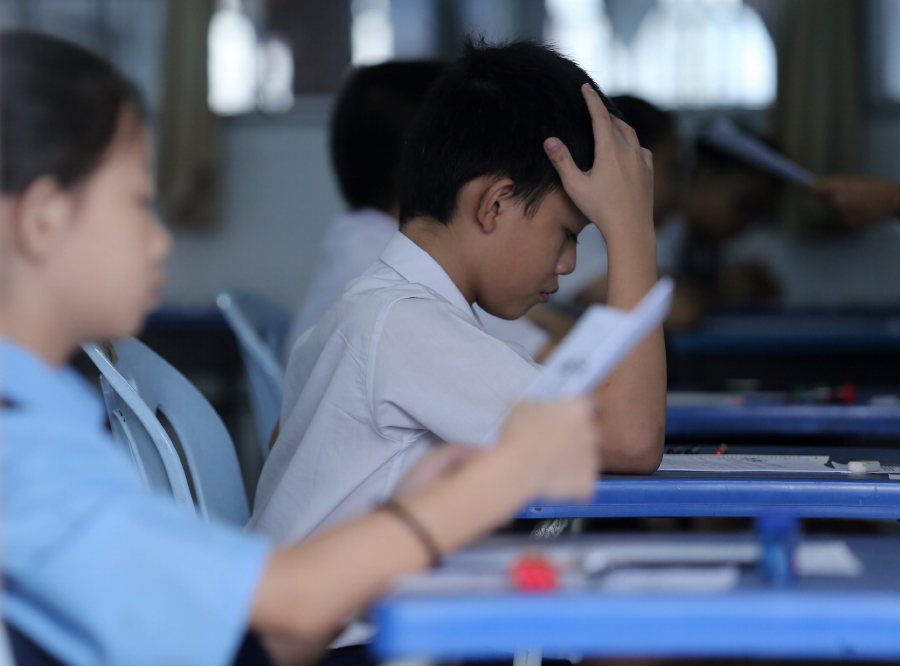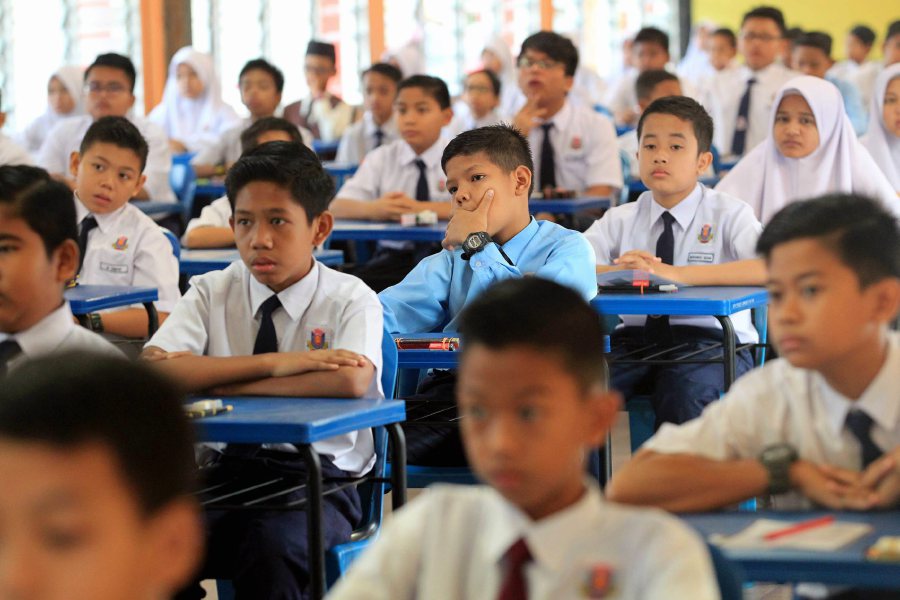UPSR Results Reveal That Almost 60,000 12-Year-Old Malaysians Are Obese
It was revealed in the Body Mass Index (BMI) component of the Primary School Assessment Report (PPSR).
The 2017 Ujian Penilaian Sekolah Rendah (UPSR) results were released on 23 November and it revealed some interesting statistics on Year Six students in the country
Year Six students with their UPSR results yesterday, 23 November.
Image via Farizul Hafiz Awang/New Straits TimesFor the first time in Malaysian history, the Education Ministry took a refreshing, new approach in announcing UPSR results by including three other non-academic assessment reports, namely:
1. Sports, physical, and curriculum activities assessment - students will be evaluated on their level of fitness, body mass index, and participation in sports, co-curriculum, and extra co-curricular activities.
2. Classroom assessment - among others, students will be evaluated on their abilities to use various instruments, materials in class.
3. Psychometric assessment - this assessment will look at students' psychological traits and measure their innate and acquired ability in different areas including music, linguistics, naturalist leanings, mathematical logic, and kinesthetic learning.
Out of the three non-academic assessments, the Sports, Physical, and Curriculum activities assessment stood out, as it revealed that 58,294 Year Six students in Malaysia are obese
The Body Mass Index (BMI) assessment found that 56,294 (13.4%) students are at the risk of being obese, 58,294 (13.8%) are obese, and 40,347 (9.5%) students are underweight. The remaining 268,314 (63.4%) have normal BMI.
"We need to tackle this issue and the participation of various parties including parents, ministries, and non-governmental organisations (NGOs) are crucial. It is a societal problem, not a school problem," stressed Education director-general Datuk Dr Amin Senin in a New Straits Times (NST) article yesterday, 23 November.
Meanwhile, the Physical Fitness Standard (SEGAK) assessment found that 40,957 (9.5%) students recorded 'very high' fitness levels and 168,101 (38.8%) were categorised as having 'high' fitness levels
"On the other hand, 189,929 (43.9%) candidates recorded 'fit' fitness levels and 3,644 (0.8%) candidates recorded 'unfit' fitness levels," said Dr Amin.
He also advised parents to refer to their children's Physical Activities, Sports, and Co-curricular Assessment (PAJSK), Physical Fitness Standard (SEGAK), and BMI to ensure that they are healthy and physically active.
Explaining the new approach, Dr Amin said that the ministry is committed to providing a wholesome education experience for students
"It is no longer about how many As the students secure, but the emphasis is on how they do in other areas, especially on character building and instilling values as well as creating fun learning in schools.
"We will do away with school average grades and subject average grades as they place pressure on schools, teachers, and students to excel solely on academics," added Dr Amin in a report by New Straits Times (NST) earlier this week.
He also said that it is unfair to evaluate the students based on their academic achievements alone, without taking into consideration their physical, emotional, and spiritual progress and development.
"Each student is unique in their own way and it is only fair that the evaluation takes note of all their best aspects. Priority should be given to students' development as a whole," added Dr Amin.



